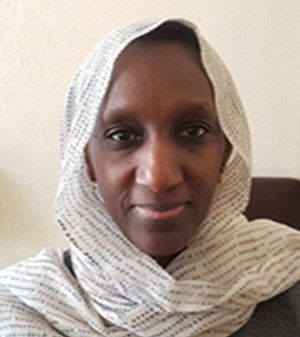We live in an era of unprecedented human mobility, in which over 244m international migrants worldwide are searching for economic opportunity, peace and security. Well-governed migration brings profound benefits to both “receiving” and “sending” countries. Receiving countries get productive workers who fill key gaps in the labour market and help their demographic profiles. Sending countries receive billions of dollars in remittances from their overseas workers, attract investment from affluent members of their diaspora, and leverage the benefits of “circular migration” when returning emigrants bring back their skills, expertise, contacts and personal wealth. Conversely, poorly managed migration can lead to harm, danger and insecurity. It can encourage migrant smuggling and human trafficking, as well as social unrest, xenophobia and discrimination—as observed amid Europe’s ongoing “migration crisis”. It can also create missed opportunities when receiving and sending countries are blocked from harnessing the development gains available through mobility. Effective migration governance has always been essential to promoting the benefits of migration while reducing its costs. However, the need for coherent, multidimensional and strategic approaches to migration management is now more urgent than ever. On September 25th 2015, the United Nations General Assembly adopted 17 Sustainable Development Goals (SDGs) and 169 accompanying targets as part of a global agenda to promote sustainable development over the next 15 years. The programme includes important references to human mobility and represent a historic step towards incorporating migration into mainstream global development policy. Target 10.7 of the SDGs features migration most prominently, motivating countries to “facilitate orderly, safe, regular and responsible migration and mobility of people, including through the implementation of planned and well-managed migration policies.” Migration also plays a key role in a variety of other targets, including those concerning education (Goal 4), gender equality (Goal 5), employment and decent work (Goal 8), reducing inequality (Goal 10), peaceful and inclusive societies (Goal 16), and global partnership (Goal 17). The SDGs clearly communicate migration’s potential to serve as an effective and multifaceted engine for development. However, this potential cannot be unlocked without constructing deliberate and intelligently designed migration governance structures. It is equally important to develop dedicated tools for measuring progress. If migration governance gives countries the momentum to achieve the migration-related SDGs, strong measurement tools provide these efforts with direction. The Migration Governance Index (MGI) was born out of an appreciation for these connections between development, migration, governance and metrics. Commissioned by the International Organization for Migration (IOM) and designed by The Economist Intelligence Unit (EIU), the project aims to provide a consolidated framework for evaluating country-specific migration governance structures, and to act as a potential source for informing implementation of the migration-related SDGs. The MGI looks at 15 countries—selected to provide a broad representation of levels of economic development, type of migration profile (including receiving and sending countries), and geographic scope—and uses 73 qualitative questions to measure performance across five domains identified as the building blocks of effective migration governance. These domains include: 1) institutional capacity, 2) migrant rights, 3) safe and orderly migration, 4) labour migration management, and 5) regional and international co-operation and other partnerships. It is important to clarify the parameters of the MGI. Firstly, the MGI is not intended to function as a measurement of outcomes related to migration policies and institutions. Instead, it operates as an input-based benchmarking framework that offers insights on policy levers that countries can action to strengthen migration governance. Secondly, the MGI is not meant to rank countries on their development and implementation of migration policies. Such a purpose would be controversial and ultimately unproductive, given that countries face diverse (and often unique) contexts concerning migration. Rather, the project aims to assist countries in assessing how comprehensive their policies are, what gaps exist and what areas may need improvement. Finally, the MGI is not a rigid tool, and its model and findings are not set in stone. It is better understood as a point of departure—a pilot project aimed at advancing conversations on migration governance by taking a definitive step towards clarifying what “good governance” can actually mean. As more countries become part of the MGI, greater political, economic and geographic diversity will facilitate more nuanced cross-country comparisons, allowing the tool to function as a repository for a broader array of “good practice” case studies and institutional design and policy ideas. The MGI will become a valuable resource through which policy responses to the full spectrum of migration dynamics can be gathered, measured and assessed, providing a foundation for a global research effort that helps countries benchmark their migration governance systems, learn lessons from their peers, and adapt promising strategies to suit their unique circumstances. This exercise and its findings will also inform the development of metrics for Target 10.7 of the SDGs and provide a foundation for tracking policy progress over time.
Full article: EIU-Migration-Governance-Index-20160429

Meghan Benton est directrice du programme international du Migration Policy Institute, un institut de recherche non partisan basé à Washington DC. Ses domaines d’expertise… En savoir +

Mme Tanja Dedovic est la spécialiste thématique régionale sur la mobilité de la main-d’œuvre et le développement humain, superviseuse de 17 pays de la… En savoir +

Mme Aissata Kane, de nationalité mauritanienne, a été nommée en juillet 2024 chef de mission au Sénégal avec des fonctions de coordination, couvrant la… En savoir +
©2024 OIM - Création site web ITCANE
